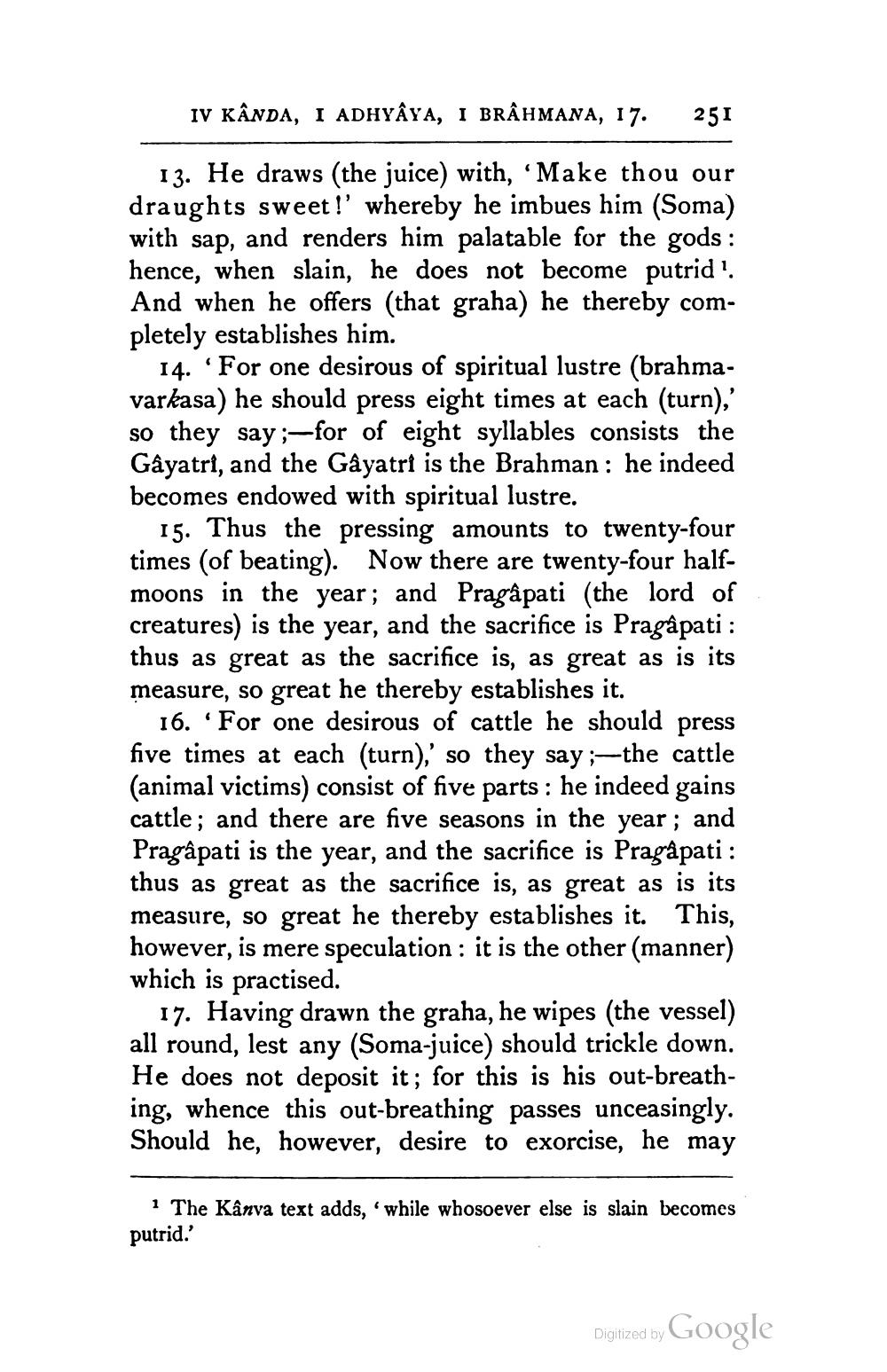________________
IV KÂNDA, I ADHYAYA, I BRÂHMANA, 17.
251
13. He draws (the juice) with, 'Make thou our draughts sweet!' whereby he imbues him (Soma) with sap, and renders him palatable for the gods : hence, when slain, he does not become putrid! And when he offers (that graha) he thereby completely establishes him.
14. 'For one desirous of spiritual lustre (brahmavarkasa) he should press eight times at each (turn),' so they say ;-for of eight syllables consists the Gayatri, and the Gayatri is the Brahman : he indeed becomes endowed with spiritual lustre.
15. Thus the pressing amounts to twenty-four times (of beating). Now there are twenty-four halfmoons in the year; and Pragâpati (the lord of creatures) is the year, and the sacrifice is Pragâpati : thus as great as the sacrifice is, as great as is its measure, so great he thereby establishes it.
16. For one desirous of cattle he should press five times at each (turn), so they say ;-the cattle (animal victims) consist of five parts: he indeed gains cattle; and there are five seasons in the year; and Pragâpati is the year, and the sacrifice is Pragàpati : thus as great as the sacrifice is, as great as is its measure, so great he thereby establishes it. This, however, is mere speculation : it is the other (manner) which is practised.
17. Having drawn the graha, he wipes (the vessel) all round, lest any (Soma-juice) should trickle down. He does not deposit it; for this is his out-breathing, whence this out-breathing passes unceasingly. Should he, however, desire to exorcise, he may
1 The Kânva text adds, while whosoever else is slain becomes
putrid.'
Digitized by Google




